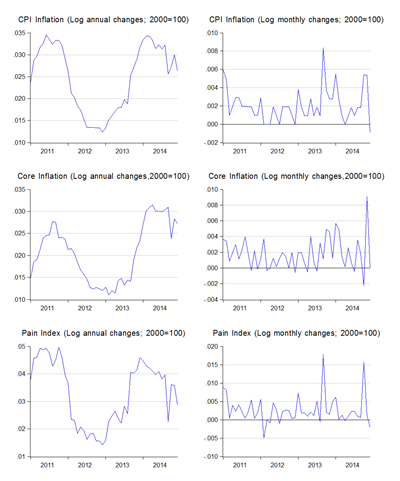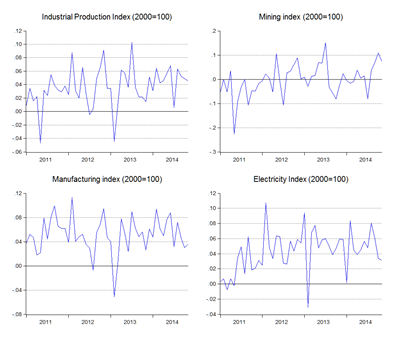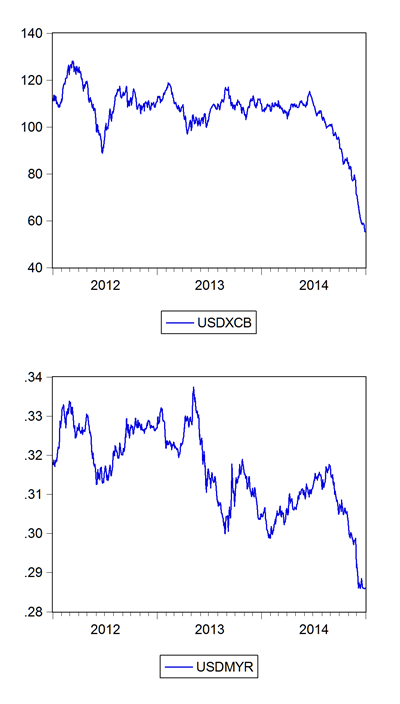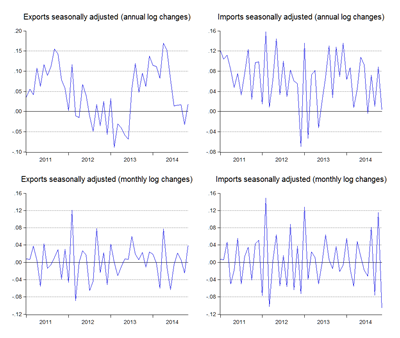This question has been coming out a bit lately, so let me try heading off any more of this nonsense before it gets any more steam.
With the Ringgit declining, some of the those with long enough memories remember what happened in 1997-1998. In September 1998, Malaysia imposed “drastic measures” – we fixed the value of the Ringgit at RM3.80 to the USD and instituted capital controls. That halted the downward spiral of the Ringgit, and allowed BNM to regain control of domestic monetary policy. So people wonder, why not peg again?
Here’s the problem with that narrative.








